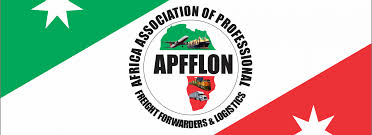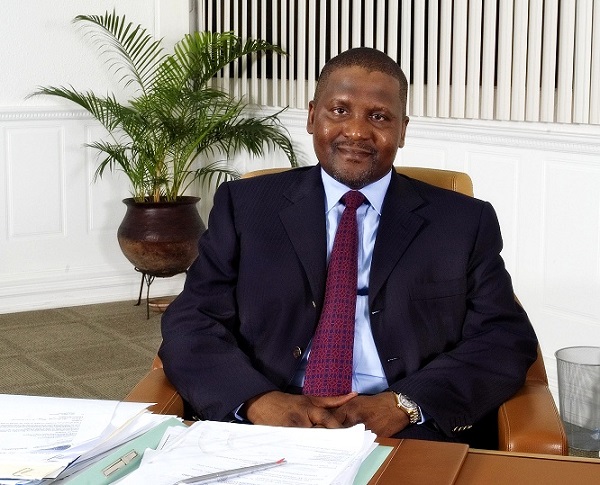Why SPOMO Act Will Fail Nigeria, Gulf of Guinea

· Anti-piracy law has several loopholes, numerous errors – Ladan
· Shipping experts fret, as convicts escape life imprisonment
· Amendment process has started at National Assembly – NIMASA
By Kenneth Jukpor
Despite intensified efforts against sea piracy in Nigeria and the entire Gulf of Guinea (GoG), the much celebrated Anti-Piracy law, Suppression of Piracy and Other Maritime Offences (SPOMO) Act will not deliver the mandate of prosecuting offenders, in its current form.
Legal experts argue that in its present state, the SPOMO Act has too many loopholes, including grammatical errors that could be misleading and encourage lawyers to elongate the judiciary process with debates on several issues.
Some analysts, however, posit that the flaws may have been intended by some syndicates during the drafting, editing and passage of the law at the National Assembly and Presidential quarters to circumvent the process of administering justice on pirates.
MMS Plus recalls that the draft of the SPOMO Act was prepared by Mr. Mike Igbokwe (SAN), a cerebral maritime lawyer, while the document was also reviewed by several committees before reaching the National Assembly, Attorney-General and the Presidency.
One of the major shockers in the Act is the use of ‘privacy’ other than ‘piracy’ in crucial portions of the legislation, highlighted on the Explanatory Memorandum, “This Act provides for the Suppression of Privacy and other Maritime Offences, gives effect to the provision of the United Nations Convention on the Law of the Sea (UNCLOS), 1982 the convention for the suppression of unlawful acts against the safety of Maritime Navigation (SUA) 1988 and its Protocols.”
This erroneous utilization of ‘privacy’ in place of ‘piracy’ was spotted by our correspondent in five places in the SPOMO Act.
Speaking with our correspondent last week, the Director-General, Nigerian Institute of Advanced Legal Studies, Prof. Muhammed Ladan warned that this typo error could encourage delays and varying interpretations by lawyers.
His words: “There are lots of typo errors in the SPOMO Act. For instance, right from the beginning, immediately after the cover page, you’ll find that in one place ‘piracy’ is spelt as ‘privacy’. So, if this kind of case goes to court, this is where lawyers waste time to determine whether you’re referring to sea piracy or sea privacy because of the typo. If you read further you’ll see the right words all through the document but if a lawyer wants to make noise he or she will start by wasting the time of the court on that particular issue. This issue and other typo errors or conflicting aspects have to be addressed speedily.”
Our efforts to reach Mr. Mike Igbokwe (SAN) who drafted the Act to find out if the error was captured in the maiden script or smuggled in during the review, were futile as Igbokwe didn’t take his calls at several attempts.
Another shocking development is that three convicted pirates have been fined only N20million as punishment by the Federal High Court (FHC) in Port Harcourt, leaving stakeholders amazed at the meager penalty for the capital intensive crime.
The three convicts were part of the nine accused persons who on March 21 hijacked an Equatorial Guinea flagged vessel, MV ELOBEY VI, off Equatorial Guinea coast, demanded for a $2million ransom out of which $200,000 (over N90million) ransom was eventually paid.
“Justice Ishaq Sani summarily convicted Binaebi Johnson, Daniel Lemmar and Ghane Gordon on Counts 1 and 2. He said that the three were convicted under the new Anti-Piracy Act 2019 and ordered to pay a fine of N10 Million each on each of the counts,” Navy Director of Information, Suleman Dahun said.
During the proceedings, Binaebi Johnson, Daniel Lemmar and Ghane Gordon pleaded guilty to counts 1 and 2 and not guilty to counts 3 – 5 while the remaining six accused persons pleaded not guilty to the charges against them.
“Accordingly, the prosecutor applied to the court to withdraw the charges on which the accused persons pleaded not guilty. The prayer was granted and the accused persons were discharged on counts 3 – 5,” Navy spokesman said.
The Nigerian Navy had arrested Binaebi Johnson, Daniel Lemmar, Ghane Gordon, Hassan Hakeem, Gregory Smith, Ofem Uket, John Mark, Chidi Amadi and Eze Amadi who were suspected to be members of the kidnapping syndicate that hijacked the vessel.
Meanwhile, in the Part II of SPOMO Act, Section 12 states that, “a person who commits an act of piracy, armed robbery at sea or any other unlawful act under this Act, whether or not he was armed with a firearm or other weapon during the commission of the offence, is liable on conviction to life imprisonment and fine of not more than N50,000,000, in addition to the restitution to the owner or forfeiture to the Federal Government of Nigeria whatever the person has obtained or gained from the commission of the crime”
“where any person commits a maritime offence, armed robbery at sea or unlawful act apart from piracy, depending on the nature and severity of the maritime offence and during the commission of the offence was in possession of or had under his control any firearm, explosive, or BRCN weapon, is liable on conviction to at least 15 years imprisonment, in addition to and without prejudice to the restitution to the owner or forfeiture to the Federal Government of Nigeria, whatever property or gains he has obtained from the maritime offence or unlawful act.”
Since the SPOMO Act stipulates life imprisonment, why was the maiden judgment tolerant with just N20million penalties on convicts, maritime observers have asked?
“We could as well encourage these pirates to aim for large vessels, collect huge ransoms and when they are apprehended they utilize a fraction of their earnings to pay fines,” a maritime expert quipped.
Shipping experts also posit that when considering the cost of tonnage of vessels usually attacked which exceeds N100million and the value of the vessels and contracts lost due to piracy, the N20million judgment meted out using SPOMO Act is insignificant.
Meanwhile, speaking on the mistakes in the SPOMO Act, a veteran maritime lawyer, Mr. Emmanuel Nwagbara expressed worry that such errors escaped the eyes of the draftsman and other legal experts and parliamentarians.
Nwagbara, however, argued that, pending the review of the SPOMO Act, the interpretation that will be given to the Act is piracy and not privacy.
His words: “You have also observed that the error is in the explanatory note of that Act. The explanatory note is just to draw attention to the sections where the provision is made. The explanatory note is usually not regarded as a substantive part of that Act or law.”
Nwagbara also explained that in legal draftsmanship, where a draftsman uses a language capable of two or more interpretations in several places; the last word will be taken as bearing the meaning the draftsman had in mind when he was writing.
“When a word occurs in different parts of an Act, the last word is accepted to be the intention of the draftsman or parliament. For example, if I intended to write two hundred and fifty thousand and I wrote two hundred and fifty naira initially before having two hundred and fifty thousand in subsequent places. The interpretation of the court will be N250,000. Besides, the law doesn’t command what doesn’t make sense. That is also another legal aphorism. Privacy doesn’t make sense in that context where it appears so the law wouldn’t recognize it,” he added.
Speaking with MMS Plus, the Director General of NIMASA, Dr. Bashir Jamoh noted that the agency has started the process to review the SPOMO Act and expunge the problematic areas.
“It is true that there are some errors in the SPOMO Act but we are making the first amendment in the House of Assembly. They are reviewing it because there are some areas to make substantial corrections,” Jamoh said.
According to the NIMASA boss, the apex maritime agency has also sought to streamline these discrepancies during its annual maritime seminar for judges.
Speaking on the convictions using the SPOMO Act, Jamoh argued that the Act has been successful with the prosecution of 10 persons.
“With SPOMO Act, after a case in Port Harcourt, 3 out of 9 persons were convicted and in a separate case in Lagos 7 others were convicted making a total of 10 convictions. However, the 10 maiden suspects are still awaiting trial in Lagos High Court. We’re expecting judgment any moment from now,” he said.
Earlier, Ladan described the Act as the first comprehensive stand alone legislation on anti piracy, on sea robbery and other maritime crimes. “Not every maritime crime is sea piracy, not every sea robbery is maritime crime. So, it’s a very comprehensive instrument and the first stand alone instrument not only in Nigeria but in the entire Gulf of Guinea which consists of West and Central African countries.”
The SPOMO Act is expected to summarily prosecute apprehended pirates and some analysts posit that NIMASA and the Nigerian Navy may have more difficulty apprehending the pirates than using the legal instrument.
Speaking with our correspondent, a maritime expert who preferred anonymity said; “In this 2021, there are lots of kidnapping and piracy still going on in the Gulf of Guinea as reflected in the International Maritime Bureau (IMB) report of the first quarter of the year.”
“The menace is still there and it’s on the high side. It’s when pirates and sea robbers are arrested that the enforcement of the Act can come into existence but if they’re not arrested nothing can be done. The issue now is how can they be arrested?”
While expressing optimism with the impending commissioning of the Deep Blue Project, the source stressed that the Niger-Delta which is the hot-spot for kidnapping, is a small place where the inhabitants of the Islands have mingle with residents.
“The most problematic area or piracy hotspot in Niger-Delta is a small island. This Island is where all these atrocities are committed, but it’s a really small place. One can’t believe that people exist there but they do and security agencies are not paying attention to these areas. It’s easy to commit crimes and escape through this island. What people are asking for now is a strong surveillance system and availability of local securities that would be transparent and faithful to the job,” she stressed.






